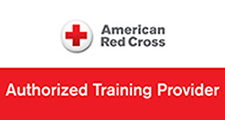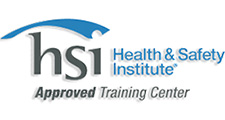- Office Phone:
- (718) 631-3333
- Office Hours:
- Mon - Sat: 9:00 AM to 12:00 PM - Sun: Closed

Vacation Mishaps: Dealing With Injuries While Traveling
Vacations are meant to be a time of relaxation, exploration, and fun. However, unexpected mishaps can occur, including injuries. Whether it's a slip on a hiking trail, a sunburn from a day at the beach, or a stomach bug from unfamiliar cuisine, dealing with injuries while traveling can be challenging. Here are some tips to help you navigate vacation injuries and ensure your trip doesn't get derailed by unexpected health issues.
1. Be Prepared:
Before embarking on your vacation, take some time to prepare for potential injuries. Pack a small first aid kit containing essentials like adhesive bandages, antiseptic wipes, pain relievers, and any prescription medications you may need. Additionally, familiarize yourself with the location of nearby medical facilities and pharmacies, especially if you're traveling to a remote or unfamiliar destination.
2. Practice Safety:
Prevention is key when it comes to avoiding vacation injuries. Whether you're swimming in the ocean, hiking in the mountains, or exploring a bustling city, always prioritize safety. Wear appropriate footwear, use sunscreen and insect repellent, stay hydrated, and heed any warning signs or advice from local authorities. By taking simple precautions, you can reduce the risk of accidents and injuries during your travels.
3. Address Minor Injuries Promptly:
Even minor injuries like cuts, scrapes, and sunburns should be addressed promptly to prevent infection and discomfort. Cleanse wounds with soap and water, apply antiseptic ointment, and cover them with sterile bandages. For sunburns, soothe the skin with aloe vera gel and take over-the-counter pain relievers if needed. Don't let minor injuries spoil your vacation – tackle them head-on so you can get back to enjoying your trip.
4. Seek Medical Attention for Serious Injuries:
In the event of a more serious injury or medical emergency, don't hesitate to seek professional medical attention. If you're unsure about the severity of an injury or if it requires medical treatment, err on the side of caution and seek help. Contact your travel insurance provider to inquire about coverage for medical expenses, and don't delay seeking care out of fear of expenses or language barriers. Your health and safety should always come first.
5. Follow Local Health Guidelines:
When traveling to a foreign country, familiarize yourself with local health guidelines and potential health risks specific to the region. Take precautions to prevent foodborne illnesses, stay up to date on vaccinations, and adhere to any local COVID-19 protocols and travel restrictions. Being informed and proactive can help you stay healthy and avoid unnecessary injuries or illnesses while abroad.
6. Take Care of Yourself:
Lastly, prioritize self-care during your vacation, especially if you're dealing with an injury or illness. Get plenty of rest, stay hydrated, eat nourishing foods, and avoid overexertion. Don't let a minor setback ruin your entire trip – adjust your itinerary if needed and focus on enjoying the experience to the best of your ability.
Vacation injuries are an unfortunate but sometimes inevitable part of travel. By being prepared, practicing safety, addressing minor injuries promptly, seeking medical attention when necessary, following local health guidelines, and taking care of yourself, you can effectively navigate vacation mishaps and ensure a safe and enjoyable travel experience. Remember to stay flexible, stay positive, and make the most of your time away from home, even if things don't go exactly as planned.





